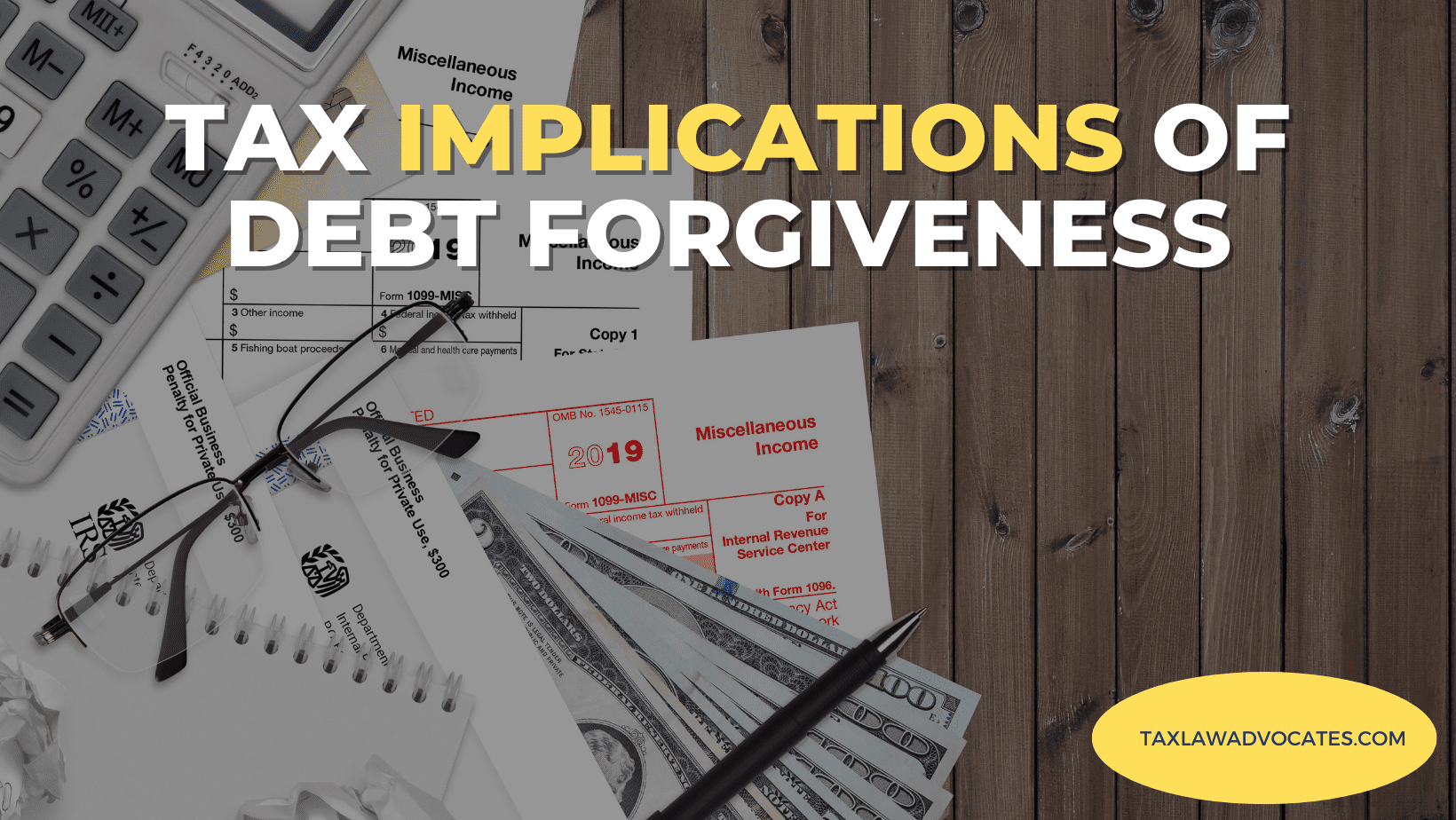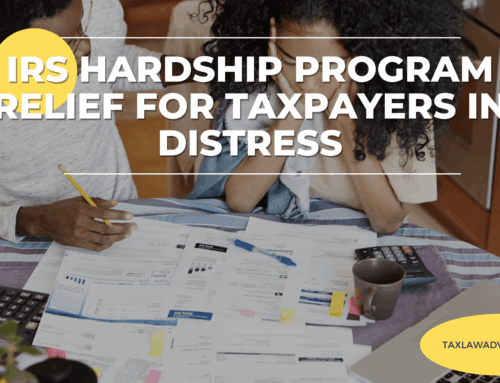Debt forgiveness can be a financial relief, but it often comes with unexpected tax obligations. If a creditor forgives or cancels a portion of your debt, you may be required to report the forgiven amount as taxable income on your tax return. Understanding how debt forgiveness is treated by the IRS and knowing your options can help you navigate the process effectively and avoid costly penalties or surprises.
At Tax Law Advocates, we specialize in helping taxpayers manage complex tax situations, including debt forgiveness. If you’re facing tax challenges related to canceled debt, our team of experts can provide guidance tailored to your unique circumstances. Call us at 855-612-7777 or visit taxlawadvocates.com to learn how we can help.
What Is Debt Forgiveness and Why Does It Matter?
When a creditor cancels or forgives a portion of your debt, the IRS considers this forgiven amount as taxable income in most cases. For example, if you owe $10,000 on a credit card and the creditor forgives $4,000, you may need to report that $4,000 as income on your tax return.
The lender typically reports the forgiven amount to both you and the IRS via Form 1099-C, Cancellation of Debt, which includes the canceled amount and the date of cancellation. It’s your responsibility to verify the accuracy of this information and report the taxable amount on your return.
Exceptions to the Rule: When Forgiven Debt May Not Be Taxable
While forgiven debt is usually considered taxable income, the law provides several exceptions and exclusions. These include:
- Insolvency Exemption
If your total debts exceed the value of your assets at the time the debt was forgiven, you may qualify for the insolvency exemption. For example, if your total assets are worth $30,000 and your debts are $50,000, the forgiven debt amount may be excluded from taxable income up to the $20,000 difference. - Bankruptcy
Debt forgiven through a Title 11 bankruptcy case is not considered taxable income. This ensures individuals who are already in financial distress are not burdened further. - Qualified Principal Residence Indebtedness
If a portion of your mortgage debt is forgiven due to a foreclosure or loan modification before January 1, 2026, it may be excluded from income under certain conditions. - Student Loan Forgiveness
Certain student loans discharged between December 31, 2020, and January 1, 2026, are excluded from taxable income. This applies to loans forgiven under programs for working in specific professions or public service roles. - Other Exceptions
- Debt canceled as a gift or inheritance.
- Cancellation of qualified farm or real property business indebtedness.
- Purchase price reductions negotiated with the seller of a property.
What to Do If You Receive a Form 1099-C
If you receive a Form 1099-C, it’s crucial to take the following steps:
- Verify the Information
Review the form for accuracy, including the amount of canceled debt and the date of cancellation. If there are errors, contact the creditor immediately for corrections. - Understand Your Tax Liability
Determine if the canceled debt is taxable or qualifies for an exception or exclusion. Consulting with a tax professional can help you make this determination. - Report the Income
If the forgiven debt is taxable, report it as ordinary income on your tax return for the year in which the cancellation occurred. Use Form 982 if you qualify for exclusions or need to reduce tax attributes. - Document Everything
Keep detailed records, including correspondence with creditors and documentation supporting any claims for exemptions or exclusions.
Consequences of Misreporting or Ignoring Forgiven Debt
Failing to report canceled debt accurately can lead to serious consequences, including:
- Penalties and Interest
The IRS may impose penalties for underreporting income and charge interest on the unpaid tax. - Audits
Discrepancies in reporting forgiven debt may trigger an IRS audit, resulting in additional scrutiny of your financial records. - Collection Actions
Unpaid taxes from unreported canceled debt can lead to enforced collection actions, such as liens or levies on your property.
How Tax Law Advocates Can Help
Navigating the tax implications of debt forgiveness can be complex and overwhelming. That’s where Tax Law Advocates comes in. Our team of federally licensed enrolled agents, tax attorneys, and accountants specializes in helping taxpayers resolve issues related to forgiven debt. Here’s how we can assist:
- Evaluate Your Situation
We’ll review your financial circumstances and determine whether your forgiven debt qualifies for exclusions or exemptions. - Correct Tax Filing
Our experts will ensure your tax return is accurate, complete, and compliant with IRS regulations, minimizing your risk of penalties or audits. - Negotiate with the IRS
If you owe taxes on forgiven debt, we can negotiate payment plans or seek an Offer in Compromise to reduce your tax burden. - Provide Representation
In the event of an audit or dispute, our team will represent you and protect your interests every step of the way.
Take Action Today
Ignoring the tax implications of canceled debt can lead to costly penalties, interest, and legal issues. Don’t face these challenges alone. Contact Tax Law Advocates at 855-612-7777 or visit taxlawadvocates.com for expert guidance and personalized solutions. Let us help you navigate the complexities of debt forgiveness and ensure your financial future is secure.
Understanding the tax rules surrounding forgiven debt is essential for avoiding surprises and protecting your financial well-being. With the right knowledge and professional support, you can handle these challenges confidently and move forward with peace of mind.






